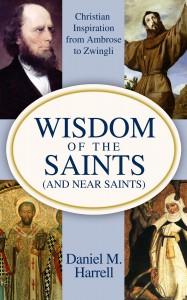Today’s guest post comes from Christian Kohs, one of an excellent class of students from Bethel Seminary who recently studied the intersection between theology and science.
If science is right, what does that do to my view of creation in light of my faith? Today a debate rages about the question of origins and where creation and humanity came from. The creation story is a witness to the beginning or becoming of all reality distinct from God in the light of God’s later acts and words relating to his people Israel—naturally in the form of a story or a drama. The theory of evolution, on the flip side, is an attempt to explain the same reality in the form of a scientific hypothesis. The creation story deals only with the becoming of all things, and therefore with the revelation of God, which is inaccessible to science as such. The theory of evolution deals with what has become, as it appears to human observation and research and as it invites human interpretation into it. Thus, one’s attitude to the creation story and the theory of evolution can take the form of an either/or only if one shuts oneself off completely from faith in God’s revelation or from the mind (or opportunity) for scientific understanding.
In my opinion, too many times Christians make an oversimplification error by claiming the world around us can easily be described by the information found only in the words of the Bible, which they frequently try to portray as an all-inclusive scientific document as well. Despite the claims by some Christians, God’s Word is not a book of science. The Bible is factual, but because it makes such broad statements about our complex world, it is counterproductive to try to go beyond its original text. I’ve read many of examples of Christians going through the Bible and gleaning out statements that appear to be scientific in nature. However, we need science as well in order to understand the creation/evolution debate.
Whether we like it or not, much of our passion, Christian or not, for this subject is because of the implications it has for everything else we think we know and believe. Genesis says that there was a beginning to history, which means there will be an end. Genesis says that creation comes from God, which means it belongs to God. Genesis says that people come from God, which means that people will stand before God in the end. Genesis was not written as a scientific textbook. Rather, it is a theological narrative written to reveal the God of creation, which means it emphasizes God, not creation. As one example, Hebrews 11:3 says, “By faith we understand that the universe was created by the word of God, so that what is seen was not made out of things that are visible.” The Bible in general, and the opening pages of Genesis in particular, are far more concerned with the questions of who made creation, how he made creation, and why he made creation than when he did it. I am now on the bandwagon of desiring for Godly Bible-believing and Jesus-loving people to graciously debate and discuss what Genesis 1 and 2 mean without viewing one another in the same light as non-Christians who hold to naturalistic and atheistic evolution. Our God is a God who is bigger than us and if He wanted to, could have created the world via the evolutionary process. There is an enormous difference between discussing what the Bible says, what science says and ignoring them both altogether. My hope is that the Christians in our churches would not become divisive over this matter or seek to make their view the litmus test for Christian orthodoxy, but to embrace any differences under the banner of Jesus. As Paul says, “we now see only in part and one day in Jesus’ presence we will know in full” and be in complete agreement on this and all other matters. Because salvation is the most important issue for us to be spending our time and energy on, all Christian endeavors need to be productive in the area of winning people for the Kingdom of God. When it comes to sharing the gospel with others, arguing about creation simply does not carry as much weight as Christians have given it in the past.














